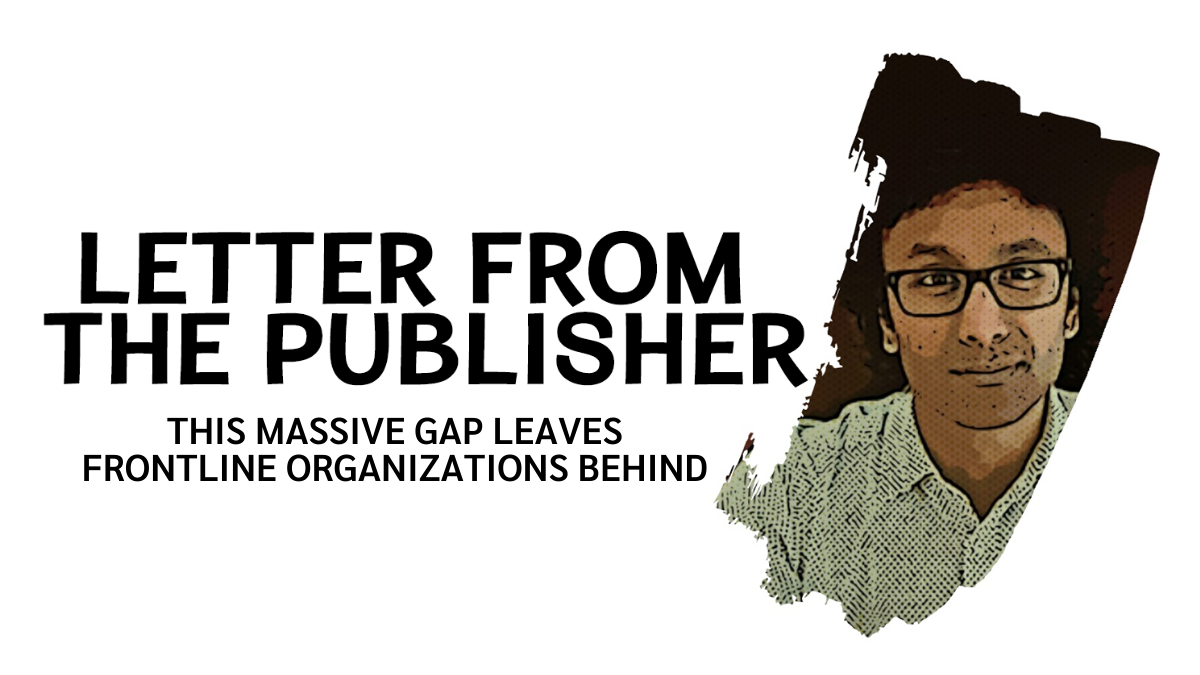There’s groundbreaking research taking place right now — but most social impact organizations will never know about it

Last week, six people were recognized for their ground-breaking work at the Governor General’s Innovation Awards. One of the things that I find unique about these awards is the celebration of academic innovations, like CHIME, a revolutionary new Canadian telescope as well as frontline innovations, like Embers Staffing Solutions, a radical rethinking of temporary and transitional work for people facing multiple barriers.
As an aerospace engineer and a social change nut, my brain didn’t know which innovation to get more excited about.
In the end, I settled on: they both matter.
I do wonder however, especially during this time of COVID-19 relief-related work across Canada: How much academic knowledge makes it to the frontline, and how much frontline knowledge makes it to academia?
Let me dive into one side of this coin for now.
Like many parents across the country, I’ve wondered about the long-term biological effects of COVID-19 stress on kids’ health and development. Despite the relatively low incidence of severe illness in children, I wonder if the responses to the pandemic including physical distancing and schools closures may have long-term adverse effects. Perhaps unlike many parents, I started looking into all kinds of academic research on kids’ mental health, and found that there’s some fascinating work underway right now. But it was difficult to find, and when I did find it, difficult to understand as a non-academic.
Let me illustrate with an example. Researchers in psychology, genetics, and developmental biology at University of British Columbia and the Child and Brain Development Program of CIFAR, are investigating “stressors,” the biological mechanisms by which social factors influence child health and development. Why are they embarking on this? Children are facing these stressors without access to the stabilizing routines and activities that typically support their development. Schools and most daycares are closed. The cancellations and restrictions of sports and summer camps mean further loss of opportunities for learning, interaction, and play. And what did researchers find so far? According to an article in The Conversation, stressors stemming from the pandemic may become biologically imprinted in children and leave a lasting mark on health and well-being, and that early-childhood experiences can lead to stress, inflammation, and chronic health conditions in adulthood.
Sounds juicy, right?
My journey ends there. I tried to dig deeper into the really interesting findings, published as a journal article in Biological Psychiatry, an academic journal of neuroscience. I couldn’t understand what the abstract (another word for short summary) was trying to convey. It had terms like neuroimmune network hypothesis, the cortico-basal ganglia reward, and heuristic framework. The icing on the cake: I couldn’t even access the actual journal article.
This made me think: what kinds of frontline organizations could really use these types of findings during this time, but are denied access to them, or are utterly confused by the language used?
Publicly funded research should be about furthering knowledge for all.
Organizations like Boys and Girls Clubs, YWCA, Kids Help Phone, 211, Playing and Learning Together, Canadian Centre for Men and Families, and many more are tirelessly working to help children, youth, and families. Think about the local organizations working on this issue in your community. What if they could access the latest research in kids’ stress and well-being? How might that improve services and programs on the ground?
But frontline organizations can’t understand or access this kind of research — unless they have a budget to pay for it (Biological Psychiatry runs about $1500 USD per year), or are affiliated with a university.
Which explains why, despite the growing recognition of the research to practice gap, about 30 percent of social science and 80 percent of humanities articles are never cited, let alone applied on the frontline. This lack of diffusion (beyond one-off community engagements) indicates that something is fundamentally amiss in knowledge mobilization and in the working of postsecondary institutions.
There is some good news. In the last decade alone, there has been a six-fold increase in the number of open access journals. Things are moving in the right direction, but this increase still accounts for only around 20 percent of all publishing.
The Community Scholars Program, run by Mindset Foundation in Vancouver, is one initiative tackling this challenge head on. The program started in 2016 with two publishers offering free journal access to 25 community scholars — staff of charities and non-profits who are interested in accessing the latest research and knowledge to enhance their frontline work. By early 2019, demand grew to 500 community scholars who now have access to 20,000 journal titles and e-books across seven publishers in British Columbia.
Now, what will it take to replicate initiatives like this one across the country before COVID-19 ends?
It’s time to build reciprocal and respectful channels so academic and frontline knowledge are working together to enhance lives post-pandemic.
Vinod Rajasekaran
Publisher & CEO
